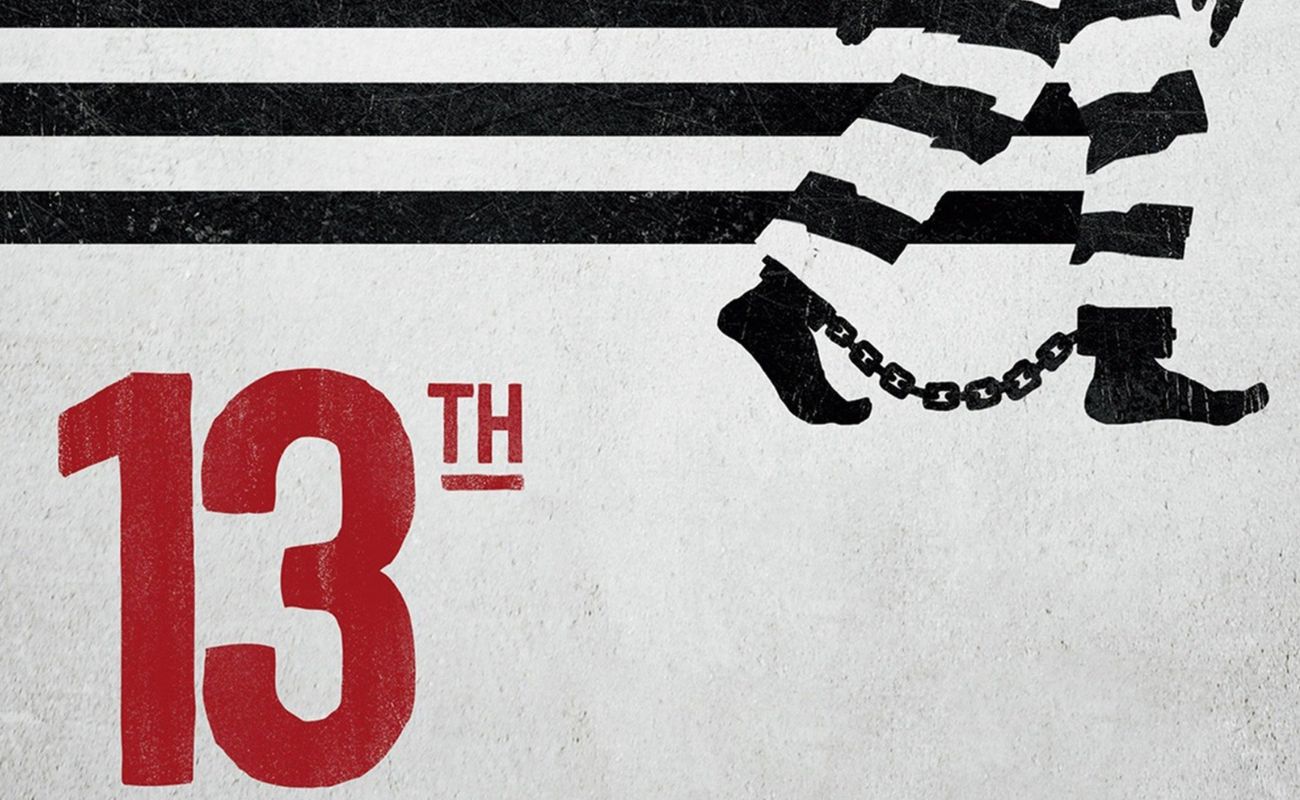
Prepare to dive into the fascinating world of the critically acclaimed documentary film, “13th.” Directed by Ava DuVernay, this thought-provoking and eye-opening documentary explores the deeply rooted issues of racial inequality and mass incarceration in the United States. With its compelling storytelling and extensive research, “13th” has become a powerful tool in raising awareness and fostering conversations about the systemic injustices within the criminal justice system.
In this article, we will uncover 30 compelling facts about the movie “13th,” shedding light on its impact, awards, and the profound messages it delivers. So, grab some popcorn and get ready to explore the captivating world of “13th” like never before.
Key Takeaways:
- “13th” is a powerful documentary directed by Ava DuVernay, shedding light on racial inequality and mass incarceration in the American prison system. It has sparked important conversations and received critical acclaim.
- “13th” challenges viewers to confront systemic injustice and advocates for criminal justice reform. With its compelling storytelling and impactful message, it has left a lasting impression on both the film industry and society.
“13th” is a thought-provoking documentary.
The movie explores the racial inequality and injustice within the American prison system.
Ava DuVernay is the director of “13th”.
Ava DuVernay is a renowned filmmaker known for her powerful storytelling and social commentary.
The film was released in 2016.
It premiered at the New York Film Festival and later got distributed by Netflix.
“13th” refers to the 13th Amendment to the United States Constitution.
The movie delves into the loopholes and systemic issues of the amendment that perpetuate racial discrimination.
The documentary features interviews with activists, scholars, and politicians.
Experts such as Angela Davis, Michelle Alexander, and Cory Booker provide insightful perspectives on the subject matter.
“13th” was nominated for the Best Documentary Feature at the Academy Awards.
The film received critical acclaim and made a significant impact on the national conversation.
The movie highlights the disproportionate incarceration of African Americans.
It exposes the deep-rooted bias in the criminal justice system and the impact it has on communities of color.
“13th” examines the connection between slavery and mass incarceration.
The film draws a parallel between historical racial oppression and the present-day prison-industrial complex.
The documentary sheds light on the exploitative practices of for-profit prisons.
It raises questions about the motives behind incarcerating a large number of individuals for financial gain.
The film argues that the prison system has become a modern-day form of slavery.
It challenges the notion of rehabilitation and portrays incarceration as a tool for social control.
“13th” received numerous awards and accolades.
It won the Best Documentary award at the British Academy Film Awards (BAFTA) and the Critics’ Choice Documentary Award.
The documentary ignited important conversations about criminal justice reform.
It forced people to confront the systemic issues and work towards creating a fairer and more just society.
The movie prompted President Barack Obama to discuss criminal justice reform.
After watching the film, President Obama held a screening at the White House and participated in a panel discussion.
“13th” has a runtime of 100 minutes.
The film effectively utilizes its concise duration to deliver its powerful message.
The documentary uses archival footage and historical references.
These elements provide a comprehensive understanding of the racial discrimination prevalent throughout American history.
“13th” explores the role of media in perpetuating stereotypes and fear.
It examines how media narratives contribute to the criminalization and demonization of black individuals.
The movie draws attention to the school-to-prison pipeline.
It examines the policies and practices that push children, particularly children of color, into the criminal justice system.
“13th” is a powerful tool for educating and raising awareness about systemic racism.
The film encourages viewers to critically analyze and challenge the existing structures of power.
The documentary features powerful quotes and statistics.
These compelling facts and figures contribute to the impact and credibility of the film’s arguments.
“13th” received a 97% approval rating on Rotten Tomatoes.
It is highly regarded by both critics and audiences for its informative and captivating storytelling.
The movie’s title is stylized as all lowercase.
This intentional formatting choice emphasizes the emphasis on the concept of the “13th” Amendment.
The documentary premiered on Netflix on October 7, 2016.
Its availability on the streaming platform enabled a wide audience to engage with its important message.
“13th” received the Peabody Award in 2017.
The Peabody recognizes outstanding achievement in electronic media and is a testament to the film’s impact.
The movie combines historical context with contemporary analysis.
It effectively connects the dots between past events and the present-day criminal justice system.
“13th” presents a broader critique of systemic oppression.
While focusing on racial inequality, the film also shines a light on other forms of social and economic injustice.
The documentary uses visual storytelling techniques to enhance its impact.
The cinematography and editing choices contribute to the emotional resonance of the film.
“13th” is often incorporated into classrooms and educational settings.
Teachers and professors utilize the film as a tool for facilitating important discussions on race and justice.
The movie received a standing ovation at its premiere at the New York Film Festival.
This enthusiastic response reflects the film’s ability to captivate and inspire its audience.
“13th” was nominated for Outstanding Documentary or Nonfiction Special at the Primetime Emmy Awards.
The nomination further solidifies the film’s impact and recognition in the industry.
The documentary showcases the power of activism and collective action.
It emphasizes the importance of advocacy and mobilization in the fight against systemic injustice.
These are just some of the fascinating facts about the movie 13th. From its powerful message to its critical acclaim, “13th” has left a lasting impact on both the film industry and society as a whole.
Whether you’re a fan of thought-provoking documentaries or looking to explore the issues of racial inequality and criminal justice reform, “13th” is a must-watch film that will leave you questioning and reevaluating the world we live in.
Conclusion
In conclusion, the movie “13th” is a powerful documentary that tackles the complex and deeply rooted issue of mass incarceration in the United States. Through its thought-provoking analysis and compelling storytelling, the film sheds light on the historical context, political influence, and systemic oppression that have perpetuated the disproportionate imprisonment of Black Americans.”13th” presents a wealth of eye-opening facts and evidence, highlighting the alarming rise of the prison industrial complex and the ways in which it has targeted and marginalized communities of color. By exploring the connections between slavery, racism, and mass incarceration, the film prompts viewers to critically examine the systemic racism ingrained within the criminal justice system.With its skillful blend of interviews, archival footage, and statistical data, “13th” effectively challenges conventional narratives and brings attention to the urgent need for criminal justice reform. It not only educates and informs but also stirs emotions and motivates viewers to take action in the fight against racial injustice.If you haven’t watched “13th” yet, I highly recommend it as it provides a powerful and enlightening perspective on the deeply ingrained issues of racial inequality and social injustice in America.
FAQs
1. What is the main message of the movie “13th”?
The main message of “13th” is to shed light on the systemic racism and oppression that have resulted in the disproportionate imprisonment of Black Americans in the United States.
2. How does “13th” explore the connection between slavery and mass incarceration?
“13th” delves into the historical context of slavery and the way in which it has evolved into modern-day systemic racism, particularly in the criminal justice system. The film highlights how laws and policies have perpetuated a cycle of oppression and re-incarceration.
3. What impact did “13th” have on public discourse?
“13th” sparked widespread conversations and debates about the issue of mass incarceration and systemic racism. It brought attention to the urgent need for criminal justice reform and encouraged many to take action in advocating for change.
4. Who should watch “13th”?
“13th” is a must-watch for anyone interested in understanding the historical and societal factors contributing to mass incarceration and racial inequality. It is especially relevant for those passionate about social justice and seeking to educate themselves on systemic racism in America.
5. Is “13th” biased in its portrayal of the criminal justice system?
While “13th” has a clear stance on the issue of racial inequality in the criminal justice system, it is backed by thorough research, expert interviews, and statistical data. The film presents an evidence-based argument, allowing viewers to form their own opinions.
Was this page helpful?
Our commitment to delivering trustworthy and engaging content is at the heart of what we do. Each fact on our site is contributed by real users like you, bringing a wealth of diverse insights and information. To ensure the highest standards of accuracy and reliability, our dedicated editors meticulously review each submission. This process guarantees that the facts we share are not only fascinating but also credible. Trust in our commitment to quality and authenticity as you explore and learn with us.


